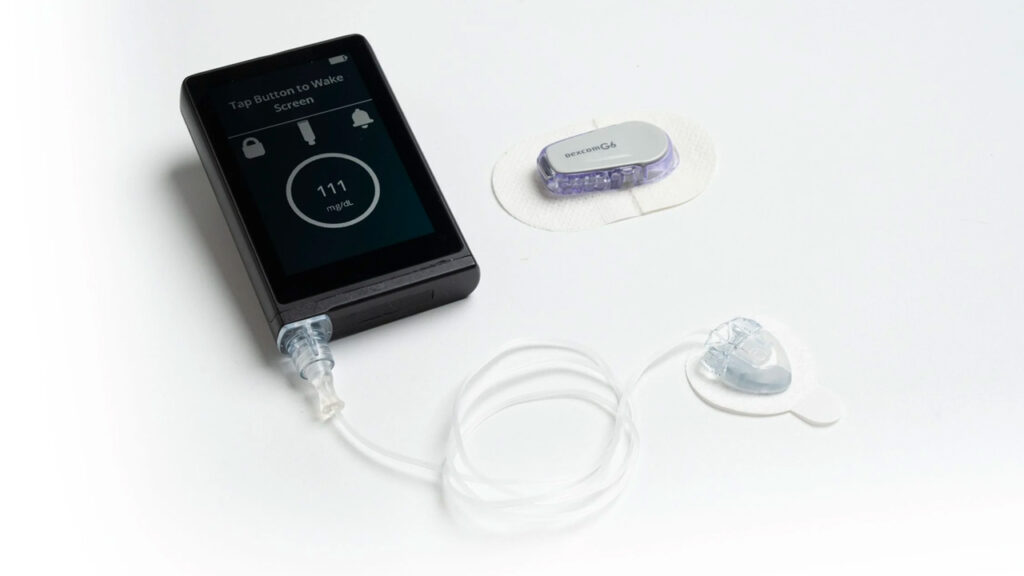
On May 23, 2023 the U.S. Food and Drug Administration (FDA) cleared the iLet® Insulin-Only Bionic Pancreas System for people 6 years of age and older with type 1 diabetes (T1D). It is an artificial pancreas system designed to autonomously determine and deliver insulin doses to control blood glucose levels.
What is an ‘artificial pancreas’?
Automated insulin delivery systems or ‘artificial pancreases’ are automated systems designed to mimic a fully functioning pancreas by automatically adjusting insulin delivery in response to changes in blood glucose levels.
How does the iLet® Insulin-Only Bionic Pancreas System work?
This new device technology includes an algorithm and integrated infusion pump that communicate directly with a compatible FDA-cleared integrated continuous glucose monitor (iCGM), enabling it to be an artificial pancreas, or automated insulin dosing (AID) system.
The iLet system is designed to have users enter only their weight for the iLet to initialize therapy. Immediately thereafter, the iLet begins working to automatically control blood glucose levels, without requiring the user to count carbohydrates, set insulin delivery rates, or deliver additional insulin for meals or corrections. (Users do have to say whether the amount of carbs in a meal is small, medium, or large, but the algorithm learns over time to respond to individual insulin needs.)
The submission was based on a multi-center randomized insulin-only iLet Bionic Pancreas pivotal trial, which tested the insulin-only configuration in 440 adults and children 6 years and older with T1D. The trial met all key endpoints, demonstrating improved outcomes over standard of care for people living with T1D:
- Average HbA1c fell from 7.9% to 7.3% at 13 weeks
- An average of 2.6 hours more time-in-range (70-180 mg/dL) per day, improving from 51% to 65% at 13 weeks
- No increased risk of hypoglycemia
What artificial pancreas technologies are currently available in Canada?
There following artificial pancreas systems are available in Canada: Tandem Control-IQ™ (2019), Medtronic 770G (2020), Medtronic 780G (2023).
In January 2023 the FDA also authorized the Tidepool Loop automated insulin dosing app for the management of T1D. The Loop is, essentially, an algorithm that can, eventually, be used to work with commercially available insulin pumps and continuous glucose monitors (CGMs). The development of this algorithm was supported by grants from JDRF International in partnership with Helmsley Charitable Trust. Tidepool has not yet announced its initial launch device partners and has not yet been approved for use in Canada. We will continue to monitor this advancement and provide updates when available.
JDRF Impact
JDRF in the United States started the Artificial Pancreas Project over 15 years ago as part of its commitment to improving lives for people with T1D while research works towards cures. To date, JDRF has funded more than $140 million in artificial pancreas research.
Through these grants, JDRF International supported the development of the algorithm and preclinical and early clinical research—in partnership with the Helmsley Charitable Trust—through grants to:
- Firas El-Khatib, Ph.D., who received a JDRF postdoctoral fellowship from 2006-2007 and is now co-founder and VP, Research & Innovation, at Beta Bionics
- Ed Damiano, Ph.D., co-founder and executive chair of Beta Bionics, from 2009-2011
- Steven J. Russell, M.D., Ph.D., who received a grant from 2013-2016 and is the principal investigator on all of the iLet clinical trials
What’s next?
While this new artificial pancreas system is not currently approved or available in Canada, it being cleared in the US offers hope that it may be approved for Canadians with T1D in the near future.
JDRF will continue to monitor and provide updates as they become available. It is hoped that this might become a new tool to help manage and improve daily T1D management, while research works towards cures.



